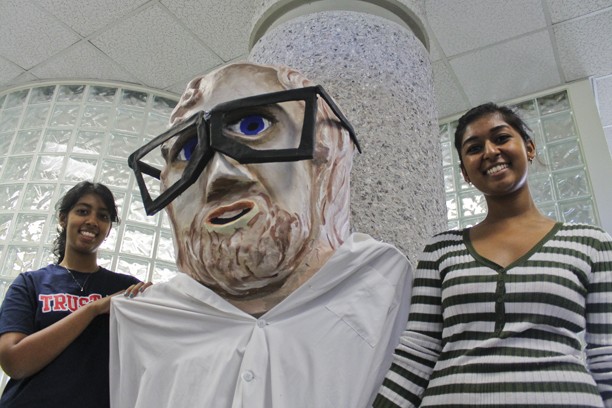The Ambassadors of the Undergraduate Biology Research Program will present “The Politics of Science, Health and Education: What You Should Know Before the Election” in the Keating building on Thursday at 5 p.m.
The event will feature experts from the health, science, education and government fields, explaining which issues are most important during the election in these areas. In addition to the panel discussion, panelists will also hold a question-and-answer session for the audience.
“The basic premise of the event is to get people excited about voting and become informed voters,” said Shaina Hasan, the public relations officer for the Undergraduate Biology Research Program.
The program provides students at the UA the opportunity to explore biological science through first-hand research experience, which experts say can sometimes be a source for political differences.
“There is a lot at stake during this election,” said Carol Bender, a university distinguished outreach professor. “We need to make sure people are informed because we have two very different visions of the country.”
UBRP helps undergraduate students in life sciences, providing them with funding for lab work and networking and laboratory experience, Bender said. With these areas in need of government funding, it’s important to know the political issues at hand, she added.
“I feel that voting is not just specific to people who are interested in government solely,” Hasan said. “I think it is important to all people regardless of their opinions. I think it is especially important for people in science, as the government is extremely involved in scientific funding.”
The program was established in 1988 and currently supports 140 students, with 15 ambassadors. Panels like the one on Thursday are a central part of the program’s effort to inform students in the science and health fields, as well as the overall community.
“We think the university has a lot to share with the community and this is one way we can outreach,” Bender said. “I was really pleased to see the students come up with this panel idea because it is a way for the university to connect with a larger community.”









